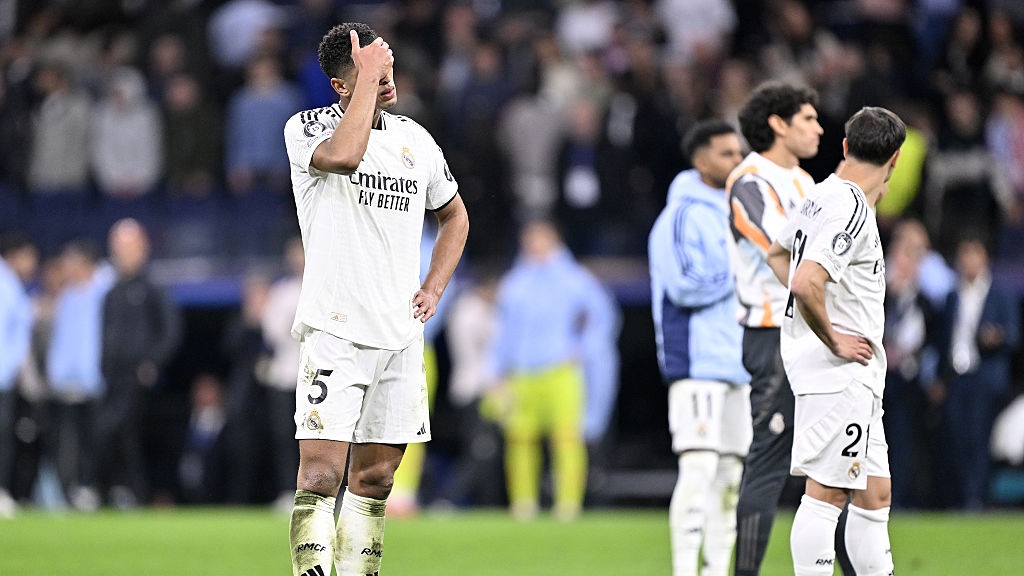Why Cristiano Ronaldo has stopped scoring for Madrid
Thore Haugstad explains the Ballon d'Or winner's mysterious goal 'drought' as Real prepare to face Schalke...
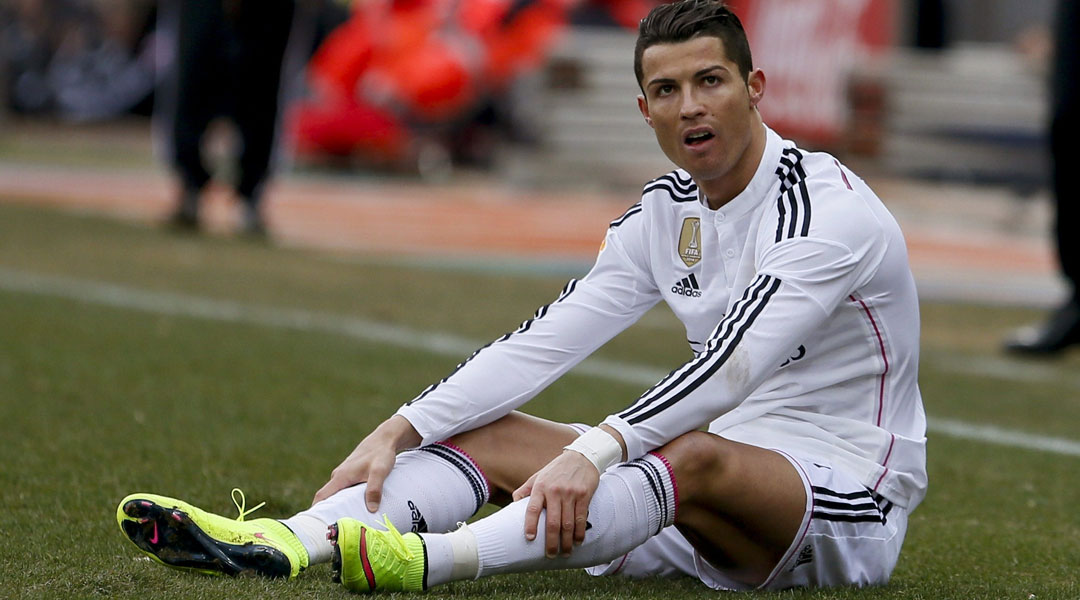
In October, this website published a story that asked: how on earth do you stop Cristiano Ronaldo? At the time, the question bordered on the rhetorical.
The Portuguese had scored 17 goals in nine club games and, after Real Madrid had played their last league game of 2014 – a 4-1 win at Almería – his record would stand at 32 strikes in just 23 appearances. How do you nullify that? The analysis tried to answer, but its pessimistic undertone also hinted towards the conventional truth: normally, one couldn’t.
Fast-forward four months and things look different. In 2015, the 30-year-old’s goalscoring ratio is four goals in eight games. For most players, such numbers would make for decent reading. But this is Ronaldo.
The Madrid press is worried, and AS recently noted that a similar dip occurred after his 2013 Ballon d’Or scalp: Ronaldo scored 13 goals in nine games during the voting process, then seven times across January and February. In early 2014, he was also sent off for a petulant incident away to Athletic Club. Last month, the same thing occurred during a 2-1 win away at Córdoba.
Clearly, not everything is right. Ronaldo’s physical level has been debated, but his mental state also seems affected. The flow has gone. In the 2-0 win over Deportivo La Coruña on Saturday, he inexplicably failed to convert a pull-back by Karim Benzema that rolled across the goal-line.
Back in October, at home to Athletic, the same player completed a hat-trick when a pass hit his shoulder and bounced into the net. So good was his form, he was even scoring when he wasn't trying to.
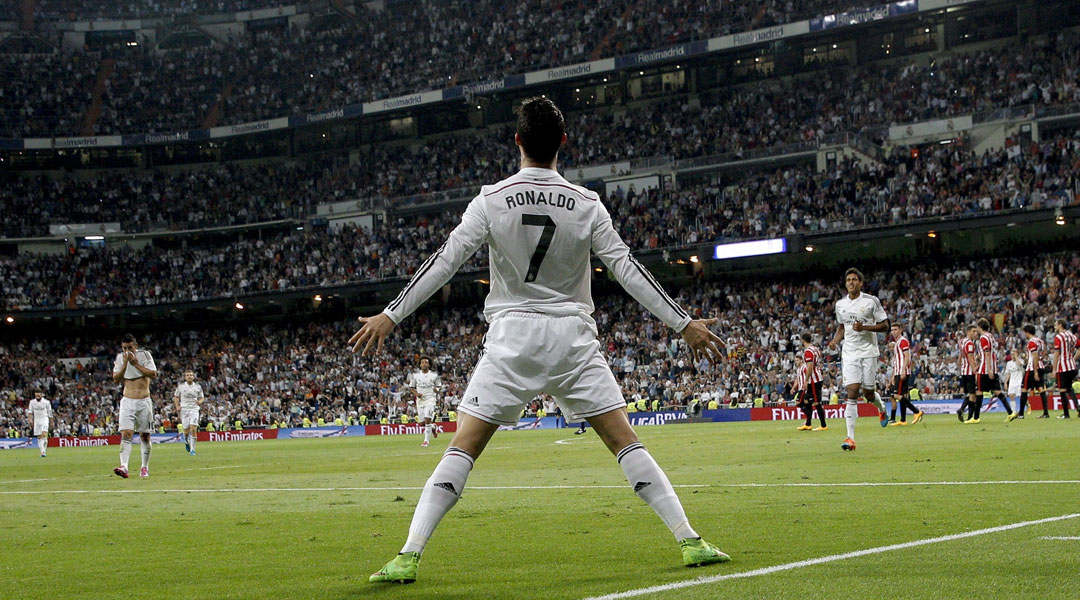
Fox in the box
Get FourFourTwo Newsletter
The best features, fun and footballing quizzes, straight to your inbox every week.
So what's changed? We can only speculate in Ronaldo’s condition – he may or may not be tired, have a bad knee, be mentally drained or struggling to focus after his third Ballon d’Or – but whatever is wrong, these are not the only factors. On the pitch, the environment around him has changed as well.
Since joining Real Madrid in 2009, Ronaldo has evolved from a tricky dribbler into a powerful poacher. He is more of a forward, less of a winger. More about explosive movement and one-touch finishing, less about fancy tricks. In his first season at the Santiago Bernabéu, Ronaldo was a supreme soloist who slalomed through defences and thundered home 30-yard strikes.
That player is long gone. His current game offers fewer long shots, fewer free-kicks, fewer dribbles. In La Liga this season, Ronaldo has completed an average of just 1.5 take-ons per game. The real damage is done inside the penalty box. Put shortly: Ronaldo needs service.
Analyse the four matches of this season in which Ronaldo really has excelled – which, by his standards, is where he has scored three times or more – and two patterns emerge. Firstly, his finishes are nearly always struck from central positions and from close range. Secondly, he depends on deliveries from out wide.
The only slight exception to this was the hat-trick away to Deportivo, which featured a long-range opening goal and an angled drive. The third goal, however, was a 12-yard header from an Álvaro Arbeloa cross.
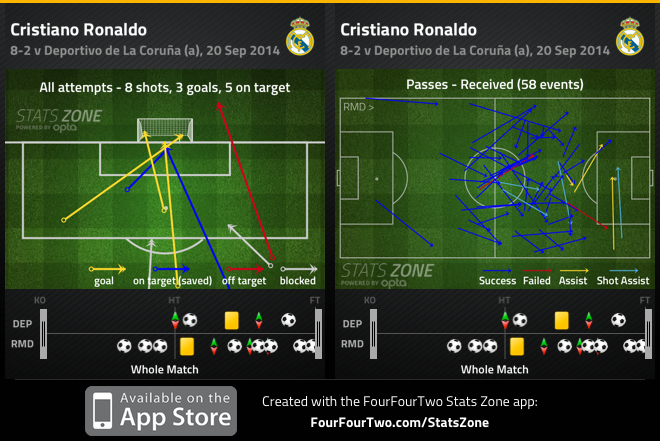
Ronaldo later put four past Elche...
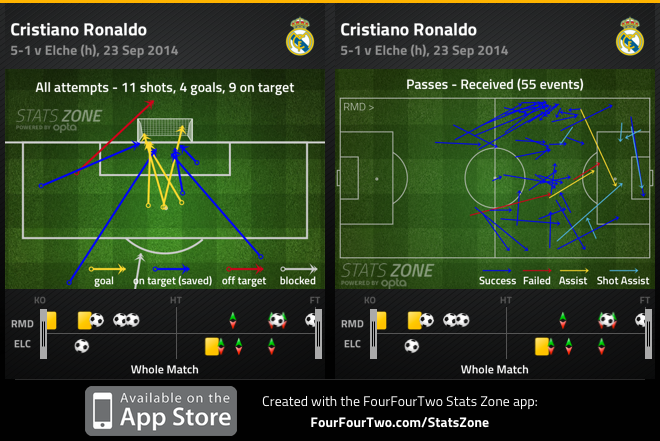
...three more past Athletic...
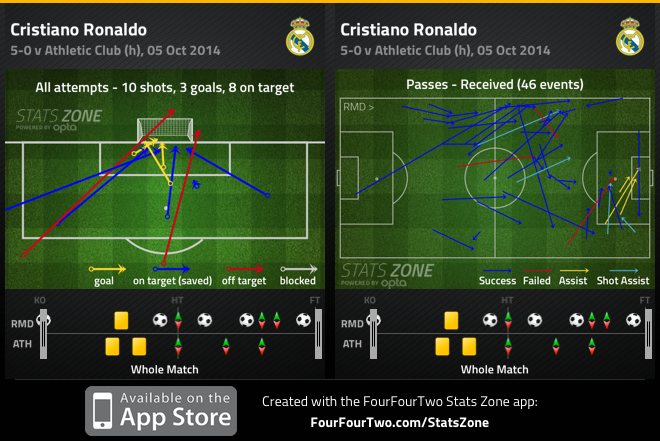
...and another three past Celta Vigo.
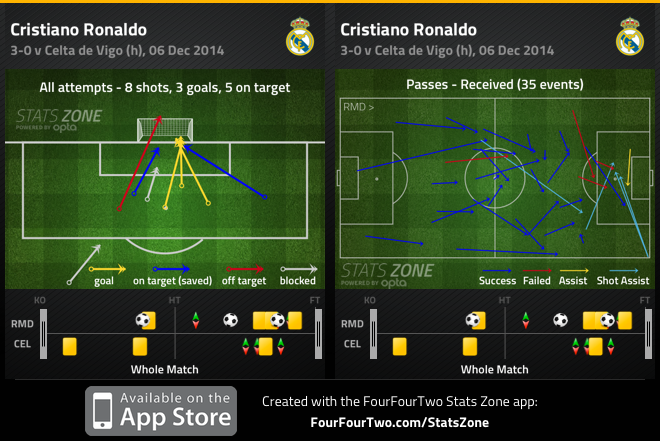
Starved of service
The trend is clear. The evolvement of Ronaldo has brought with it a dependency on a network of passers and crossers who can open up spaces and feed him. For him to thrive, the team needs to function too.
Lately, it hasn’t. The result has been a frustrated Ronaldo who has picked up possession in harmless zones without getting close to goal. The two games at Córdoba and Atlético Madrid illustrated his travails.
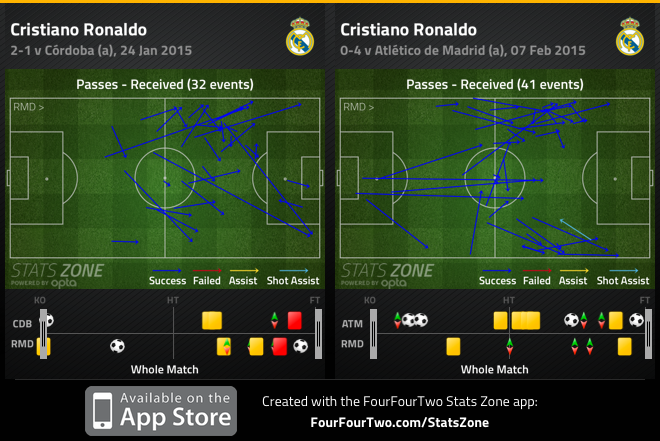
On both occasions, the areas in which team-mates picked him out made matters of shooting and dribbling almost irrelevant. The problem was not that Ronaldo failed to beat four Atlético players from 40 yards out, but rather that the right scenarios never materialised. The close-range opportunities never came his way.
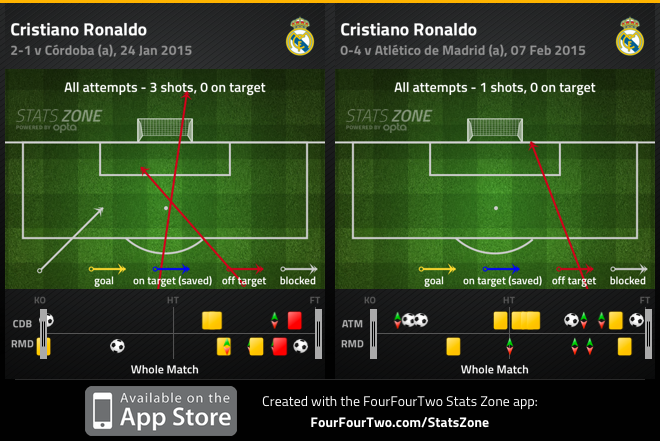
The great exception since Christmas was the 3-0 win away to Getafe. Real Madrid cranked into gear in the second half and the service to Ronaldo improved drastically.
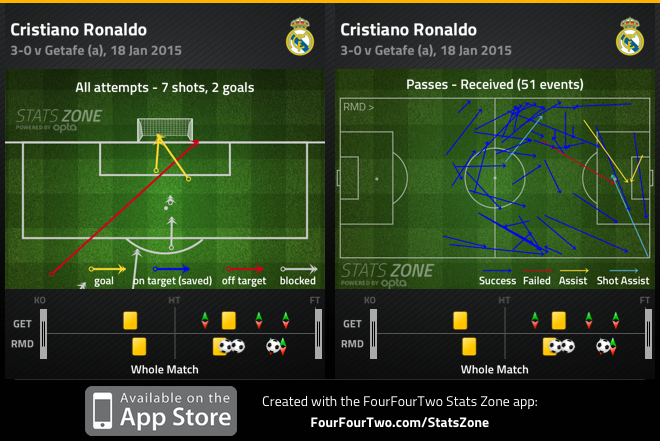
The latest win against Deportivo also suggested positive changes. Several chances fell to Ronaldo, with his inaccuracy letting him down. Nonetheless, some of the patterns of 2014 appeared to re-emerge, with Ronaldo drifting into several dangerous positions.
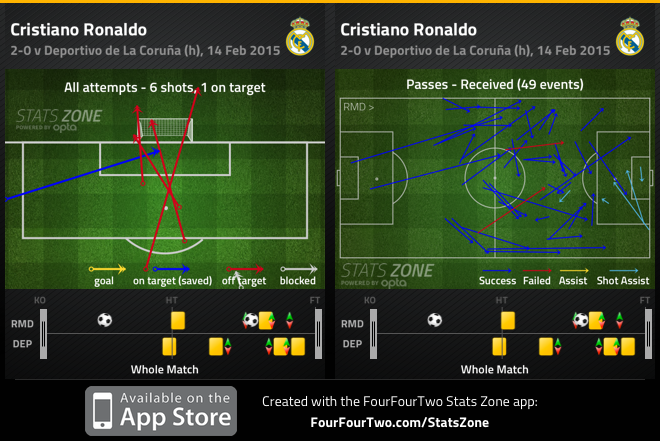
Temporary slump
Looking back, the inquest should not only centre on Ronaldo’s personal form, but also that of Real Madrid as a collective. The contrast with Lionel Messi is worth noting. Since the Argentine dictates so much of Barcelona’s play from deep positions, his mood can change the flow of the entire team.
Ronaldo's involvements in established play are mostly restricted to harmless short passes and, as such, his influence on the team dynamic is nowhere near as great.
Why have Real Madrid declined? Reasons may include Carlo Ancelotti’s aversion to resting players and the fixture pile-up caused by the Club World Cup in Morocco in late December. They certainly include the November injury of Luka Modric, whose constructive passing and driving runs propelled the team forward.
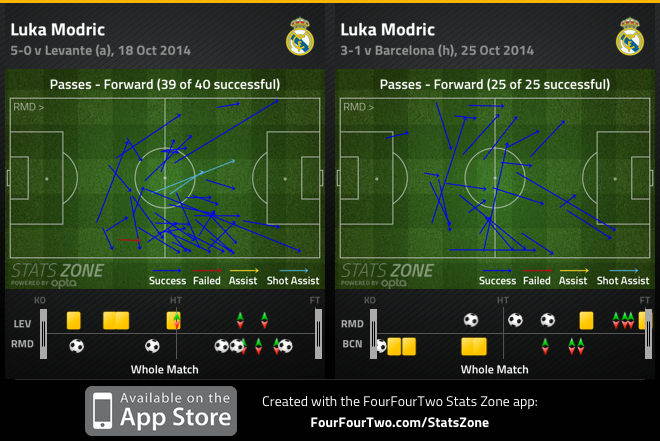
Yet when Real Madrid do eventually recover form, Ronaldo’s goalscoring rate is destined to rise. The European champions play Schalke away tonight – where they won 6-1 at the same stage last year, Ronaldo scoring twice – before Elche and Villarreal await in La Liga. The stratospheric numbers of late 2014 may not be repeated, but the current slump seems unlikely to last long.
Schalke vs Real Madrid LIVE ANALYSIS with Stats Zone
